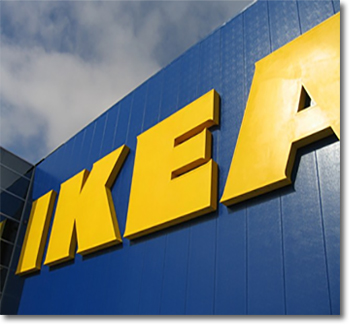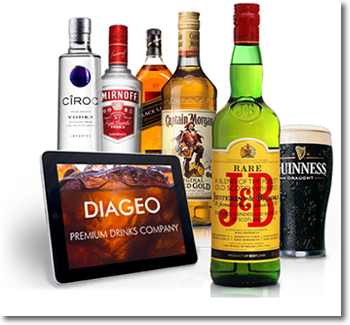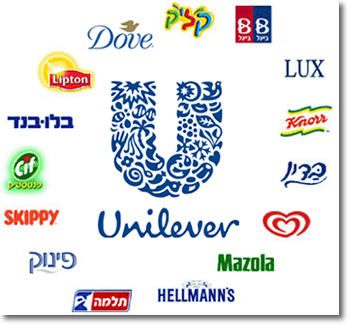Earth Day and the Sustainable Supply Chain

Whether for cause marketing purposes or out of the goodness of their own hearts, corporations are paying more attention to our planet and the topic of sustainability, especially Supply Chain Sustainability.
Earth Day is celebrated worldwide every year on April 22nd (today). The first Earth Day took place in 1970, but according to the founder, Senator Gaylord Nelson, the idea evolved over a span of seven years.
Troubled by a lack of political attention, in November 1962, Senator Nelson made it his goal to persuade President Kennedy to focus the political spotlight on the environment.
Although the first attempts at garnering the public’s attention floundered, in 1969, Senator Nelson announced there would be a grassroots demonstration in the spring of 1970 that would provide the American people with a platform to express their concerns about environmental degradation.
This announcement resonated well with the American people and in the end, 20 million demonstrators participated in the event – an astonishing turnout considering there were no social networks (or World Wide Web for that matter) to spread the word!
Today, various events in over 192 countries are held as a way of demonstrating support for the protection of our environment.
Similar to the grassroots movement in the 1970’s, today’s consumers are paying more attention to when, where and how the products they buy are made and distributed. An environmental footprint can be drawn for nearly every supply chain function including manufacturing, distribution, warehousing and so on. This fresh wave of consumer curiosity has been a driving force behind companies and supply chain managers recognizing the need to take a critical look at the environmental footprint their supply chains are leaving behind.
Whether for cause marketing purposes or out of the goodness of their own hearts, corporations are paying more attention to our planet and the topic of sustainability.
In honor of this year’s Earth Day, I put together three examples of companies that have made great progress and embraced the development of sustainable (and profitable) supply chain practices.
IKEA
When I think of IKEA, one of the first words that comes to mind is “sustainability” (for some of you it may be “hot dog”, “meatballs” or “furniture”). In any event, IKEA is a company that has engrained the idea of sustainability into its corporate identity, not just in supply chain practices, but also across the entire organization. Last year I covered IKEA’s efforts in the area of carbon footprint reduction. In 2008, the company won an award for its innovative loading ledges that allowed for the transportation of more product and less air. Additionally, IKEA switched from wood pallets to paper pallets. As a result of these two measures, the company was able to reduce its C02 emissions by 75,000 tonnes per year.
Other sustainable supply chain practices include the sourcing of 41% of its wood from suppliers that are certified by the Forest Stewardship Council (FSC). All wood purchased by IKEA must also meet the company’s own forestry standards. In addition, IKEA also set the goal to have 100% of cotton purchased from farmers that meet the Better Cotton standards. Currently, 76% of the cotton purchased by IKEA meets these standards, and the company expects to reach their goal by the end of August 2015.
Related: How Does IKEA’s Inventory Management Supply Chain Strategy Really Work?
DIAGEO
Another company that has been making waves in the area of supply chain sustainability is Diageo. The company sells its vast collection of brands in the wine, beer and spirits categories in over 180 countries around the world. Some of its more famous brands include Guinness, Captain Morgan, Smirnoff and Johnnie Walker.
In 2014, Diageo announced that, for the first time, they would be integrating their sustainability achievements into their annual reports. This decision showed a new level of focus and commitment to sustainability, and highlighted its growing importance in overall company performance. The report revealed that Diageo was able to improve in the area of CO2 emissions and showed an increase in the amount of energy used from renewable sources.
In December 2014, the company announced some aspirational sustainability goals to be reached by the year 2020. Some of the measures related to supply chain management include:
- Equipping suppliers with tools to protect water resources in water-stressed areas
- Sustainably sourcing all paper and board packaging to ensure zero net deforestation
- Reducing absolute greenhouse gas emissions by 30% along the supply chain
‘Saying’ is of course different than ‘doing’, an argument I often hear in corporate social responsibility and sustainability debates. However, Diageo has recognized the importance and value of sustainable supply chain operations and is “doing” their part to create more sustainable supply chain practices. I look forward to following their progress on these initiatives.
Related: Supply Chains to Really Admire
UNILEVER
Unilever is a company I come across on a regular basis in the press when I am reading about the topic of supply chain sustainability. The company has also set lofty goals for 2020, the biggest of which is the halving of its environmental footprint in the production and use of its products. Other areas of focus include:
- Elimination of deforestation
- Developing smallholder farmers and championing sustainable agriculture
- More eco-efficient manufacturing processes
- Reducing water and energy use and focusing on better recycling practices
- Tackling the issue of climate change
Unilever has, in many cases, earned those aforementioned press headlines, as the company is making steady progress on its sustainability initiatives. For example, in 2010, only 14% of agricultural raw materials were sustainably sourced compared to 48% in 2013. Furthermore, Unilever’s CO2 emissions from energy used at their manufacturing sites were reduced by 32% from 2008 to 2013.
The great part about Unilever’s sustainability story is that it is being monitored by an independent initiative called Behind the Brands, which includes a scorecard on the company’s sustainability and social responsibility policies. Unilever currently has the highest overall score as well as “good” rankings in the areas of “climate” and “farmers” in relation to nine other top food brands. The scorecard shows the progress Unilever has made since February 2013. The positive development on this scorecard serves as a further testament to the company’s commitment to sustainable supply chain practices.
Related: What Does It Take To Remain A Supply Chain Leader?
Final Thoughts
Supply chain sustainability is more than just a fad and not simply a cause marketing campaign. Companies are beginning to realize that these sustainable approaches can not only increase efficiency, but also increase profits. This past week, we covered a story in our weekly wrap-up that displayed the benefits associated with adopting sustainable supply chain practices in the global textile industry.
According to the project results, published by the Natural Resource Defense Council, top fashion brands Target, Levi Strauss, H&M and Gap were able to save a total of $15 million annually by operating in a more environmentally responsible manner.
With that, I wish you all a Happy Earth Day and leave you with the following question: What other companies display excellence in sustainability in their supply chain operations?
Source: Inventory & Supply Chain Optimization
Related: How Trucking Companies Can, and Must, Improve Fuel Sustainability

Article Topics
BSR News & Resources
Climate and Supply Chain: The Business Case for Action How to Integrate Climate Change Risks and Opportunities into Supply Chain Management Tesla Semi All-Electric Truck Arriving in September The Sustainability Impacts of Fuel Nikola Unveils Its Hydrogen Powered Semi-Truck UPS Expands Worldwide Express Plus, Adds 200 Hybrid Electric Vehicles to Alternative Fuel Fleet Nonpetroleum Share of Transportation Energy at Highest Level Since 1954 More BSRLatest in Supply Chain
TIm Cook Says Apple Plans to Increase Investments in Vietnam Amazon Logistics’ Growth Shakes Up Shipping Industry in 2023 Spotlight Startup: Cart.com is Reimagining Logistics Walmart and Swisslog Expand Partnership with New Texas Facility Nissan Channels Tesla With Its Latest Manufacturing Process Taking Stock of Today’s Robotics Market and What the Future Holds U.S. Manufacturing Gains Momentum After Another Strong Month More Supply Chain
















